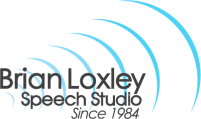[Click here for an audio version of this post]
a ya `dun
k’mir fre mint
`mel pya
nome sane
Some of you may understand these phrases because of the rhythm and intonation or because you’ve heard them said this way before. For those of you who may not have understood, let me translate:
a ya `dun
“How’re you doing?”
k’mir fre mint
“Come here for a minute.”
`mel pya
“May I help you?”
nome sane
“Do you know what I’m saying?”
To be absolutely clear when speaking, we need to pronounce all of the syllables in a word. Omitting—or dropping—a syllable will make a word or a phrase less clear. For example,
the word “Mississippi” has four syllables: [mi se SI pee], but if you omit the second syllable, the word sounds like [mi SI pee]—in other words: three syllables instead of four.
Here are some examples of words in which some speakers occasionally drop the FIRST syllable:
way
instead of “away”
Don’t go way (away)!
cuz
instead of “because”
He did it cuz (because) he wanted to.
scuse
instead of “excuse”
Scuse me! Excuse me!
spensive
instead of “expensive”
It’s spensive! It’s expensive!
member
instead of “remember”
member, I tol ya bout that.
Here the first syllable of “about” is omitted as well: Member I tol ya bout that. Remember, I told you about that.
preciate
instead of “appreciate”
I preciate it. I appreciate it.
Some speakers drop the third syllable as well as the first:
I pre-shate it.
I a-pre-she-ate-it!
In the following words some speakers drop the SECOND syllable:
Pro-bly
instead of “pro ba bly”
We’ll probly (probably) be there tomorrow.
Tel-phone
instead of “te le phone”
She’s on the tel-phone (telephone).
Fine-ly
instead of fi-na-ly
She fine-ly (finally) finished her report.
Here “finely” is another word altogether: She chopped the parsley very finely.
Re-sured
instead of “re-a-ssured”
They felt re-sured (reassured) by him.
Dif-culty
instead of “dif-fi-cul-ty”
They had a lot of dif-culty (difficulty) with this.
Op-tun-ties
instead of “op per tu ni ties”
This presented many op-tun-ties for them.
Here the fourth syllable is dropped along with the second:
This presented many op-tun-ties for them.
This presented many opportunities for them.
Co-per-a-tion instead of “co-wa-per-a-tion” We need their co-per-a-tion (co-wa -per-a-tion).
When the second syllable is omitted in the previous word, it can be mistaken for “corporation.” The corporation needs their cooperation.” Some speakers collapse two syllables into one, as when they pronounce this word as “kwa-pray-tion,” in which the first two syllables as well as the third and fourth syllables are collapsed, or said as one syllable, turning this five syllable word—co-wah-per-RAY-shun—into a three syllable word—kwa-PRAY-tion.
Two syllables are often collapsed (or “klapsed”) into one syllable in the following words:
Quite instead of “qui-et It’s very quite (qui-et) in here.
Or: It’s quite quiet in here.
Claint instead of “cli-ent” I’ve prepared these for my clint (cli-ent).
Pleece instead of “po-lice” Please call the pleece (po-lice)!
Rill instead of “re-al” He’s buying some ril (re-al) estate.
A speaker may be able to get away with dropping an occasional syllable, but dropping syllables in several words within a sentence will begin to interfere with clarity and perhaps more importantly affect the rhythm of the sentence as well as just sounding plain sloppy and under-articulated. Read the following story aloud while dropping syllables from many of the words as indicated:
I ‘member a claint of mine had an op-tun-ty to partic-pate in a ‘spensive rill ‘state dill in Pens’vania and wanted to be re-sured that he would have my kwa-pray-tion. He also had dif-culty with a noisy neighbor and used my tel-phone to call the pleece. He said he ‘pre-shated my help and then ‘scused himself; he fine-ly moved ‘way to Tenn-see ‘cause it was quite-er there than here in N’york.
Now read this passage aloud again pronouncing all of the syll-bles, (or rather syl-la-bles) and hear how it sounds this time:
I remember a client of mine had an opportunity to participate in an expensive real estate deal in Pennsylvania and wanted to be reassured that he would have my cooperation. He also had difficulty with a noisy neighbor and used my telephone to call the police. He said he appreciated my help and then excused himself; he finally moved away to Tennessee because it was quieter there than here in New York.
Pronouncing all of the syllables makes your speech clearer and more precise presenting an image of a speaker who is detailed, careful, exact, crisp, focused, and on-point—not only in what he or she is saying but in behavior and action as well.
Fine-ly, or rather finally, there are some other words where we can—and often SHOULD—drop a syllable such as “interesting” (in-tres-ting), “omelet” (om-let), “beautifully” (beau-ti-fly), “basically” (ba-sic-ly), and “discovery” (dis-cov-ry). But this is another story. So stay tuned for another edition of Inside the Speech Studio.
Read more
